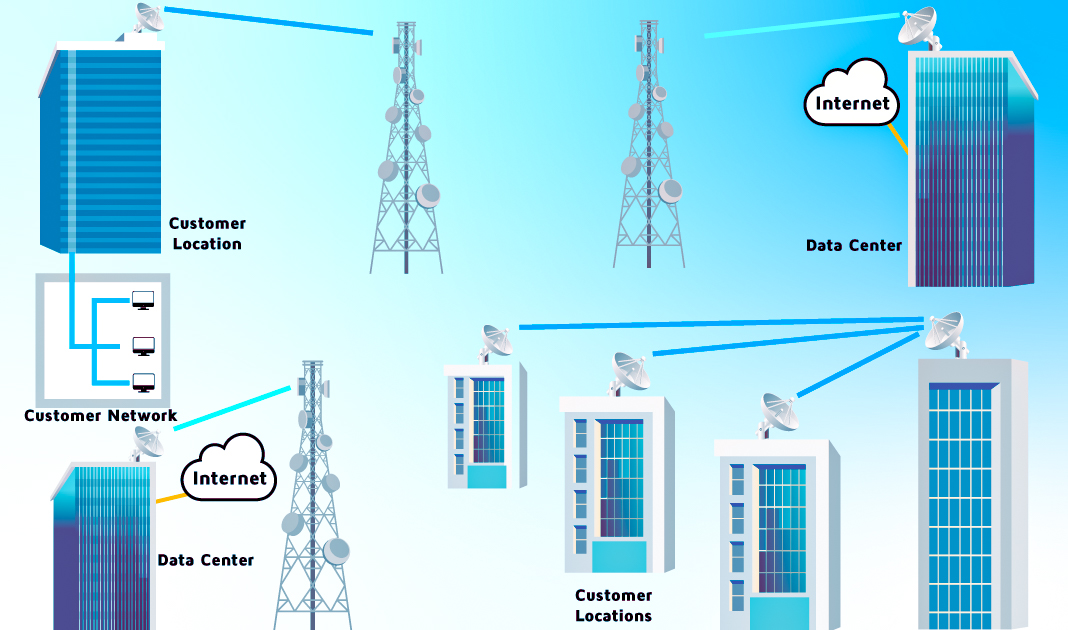Fixed wireless internet, frequently referred to as Ethernet over Fixed Wireless (EoFW) is an accomplished method of business connectivity that can provide your company’s location with broadband internet access without the use of phone or cable lines.
Fixed wireless is a microwave-based technology that allows you to send and receive high-speed data between two fixed sites or locations. It is not mobile technology and should not be confused with it. Nor is it Wi-Fi where bandwidth is shared on a “one to many” basis.
There are many compelling advantages for fixed wireless as compared to wired services such as fast installation free from trenching and construction, scalable bandwidth, true path and network diversity, and easy Ethernet hand-off.




